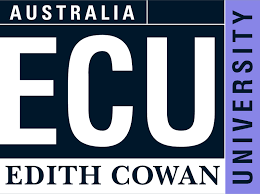
Bachelor of Biomedical Science


Overview
Duration
3 YEARS FULL-TIME
3 YEARS FULL-TIME
Scholarship
YES
YES
Fee
AU$39,550
AU$39,550
Intake
FEBRUARY , JULY
FEBRUARY , JULY
Overview
- Biomedical science is a continually changing, dynamic field with long-term career prospects, including roles in management, research, education and specialised laboratory work.
- Biomedical scientists focus on how cells, organs and systems function in the human body. Their work is an important element in our understanding and treatment of human diseases.
- This course introduces a broad range of theory, including studies in anatomy, physiology, microbiology, immunology, genetics, biochemistry and biomedical ethics, while giving you extensive practical experience in cutting edge laboratories, located in our purpose-built $50m Science building.
- As a Biomedical Science graduate, you can also continue on to specialise in one of these fields: medical science, medical microbiology, genetics, haematology, histopathology, anthropology, cytology, human biology, immunology, medicine, nutrition science, biochemistry, data science, clinical chemistry or evolutionary medicine.
Inquire Now
Course Entry
- English competency requirements may be satisfied through completion of one of the following:
- Year 12 English ATAR/English Literature ATAR grade C or better or equivalent;
- Special Tertiary Admissions Test;*
- IELTS Academic Overall band minimum score of 6.0 (no individual band less than 6.0);
- Successfully completed 1.0 EFTSL of study at bachelor level or higher in the UK, Ireland, USA, NZ or Canada;
- University Preparation Course;
- Indigenous University Orientation Course;*
- Aboriginal University Readiness Assessment;*
- AQF Diploma, Advanced Diploma or Associate Degree;
- Successfully completed 0.375 EFTSL of study at bachelor level or higher at an Australian higher education provider (or equivalent)
Course learning outcomes
- Apply broad discipline knowledge to a range of theoretical and practical biomedical situations.
- Think critically to analyse, interpret and conceptualise complex biomedical problems.
- Think creatively to anticipate challenges and generate discipline specific responses.
- Use digital technologies and literacies to access, evaluate and synthesise relevant information from multiple sources.
- Communicate disciplinary knowledge and values in professional and public contexts.
- Demonstrate a global outlook with respect for cultural diversity, including Aboriginal and Torres Strait Islander cultural competence.
- Work collaboratively and demonstrate initiative to implement social, sustainable, and ethical values.
- Demonstrate autonomy, accountability and judgement for own learning and professional practice.
Fees and Scholarships
> AUD $39,550 - International students estimated 1st year indicative fee
> ECU has a scholarship program that provides many opportunities each year to students undertaking studies here.
Popular Courses
Start your journey with landmark today!
Find your perfect course
Answer a few questions and
our course matcher will do the rest
Head Office
Level 5, IT Plaza
Kamaladi, Kathmandu
Tel: +977 14542781, 9845566225
E-mail: info@landmarkedu.com
Kamaladi, Kathmandu
Tel: +977 14542781, 9845566225
E-mail: info@landmarkedu.com
Sydney office
Suite 1 Level 1,
46 Macquarie Street,
Parramatta, NSW
Tel: +61 415 122 814
46 Macquarie Street,
Parramatta, NSW
Tel: +61 415 122 814
Branch office
Sahidchowk, Chitwan
Tel: 056-590825
Tel: 056-590825
Mahendrachowk, Biratnagar
Tel: 021-590828
Tel: 021-590828
Level 2, Milanchowk, Butwal, Rupandehi
Tel: 977-71-591694
Tel: 977-71-591694
© Landmark Education. All rights reserved.


